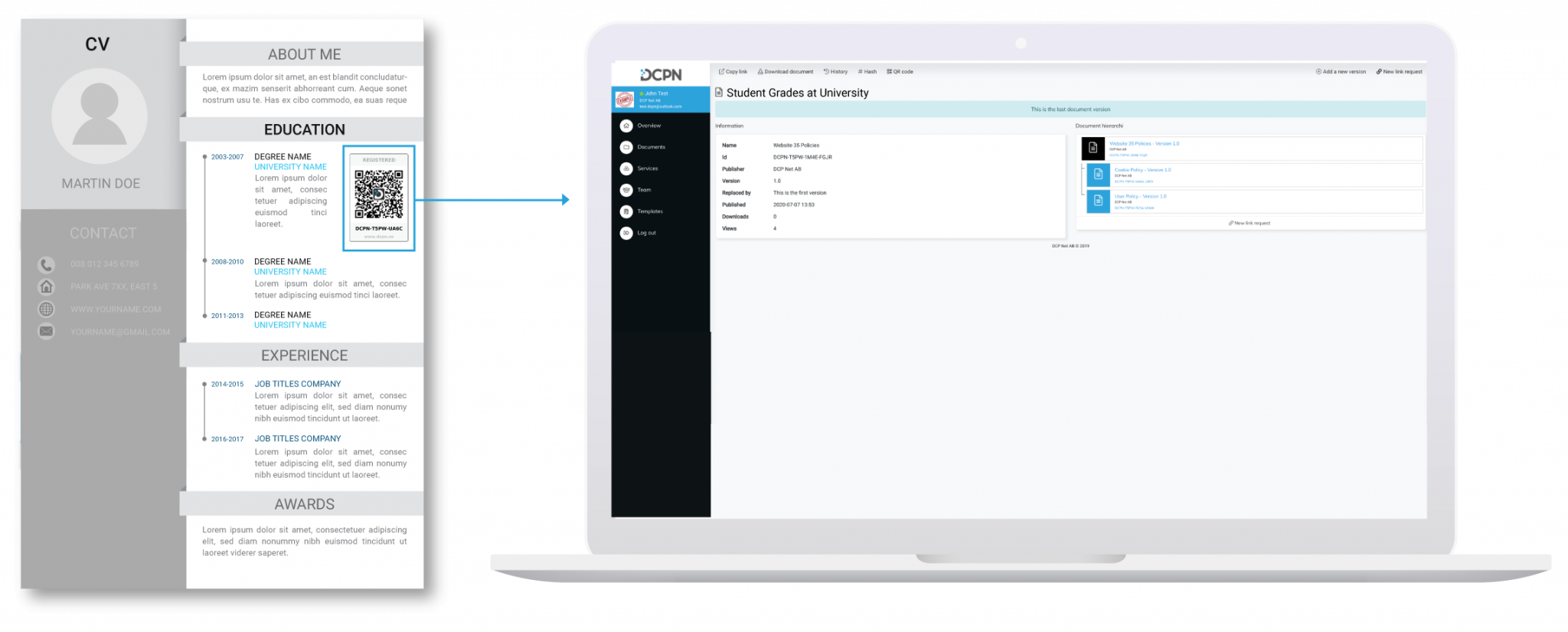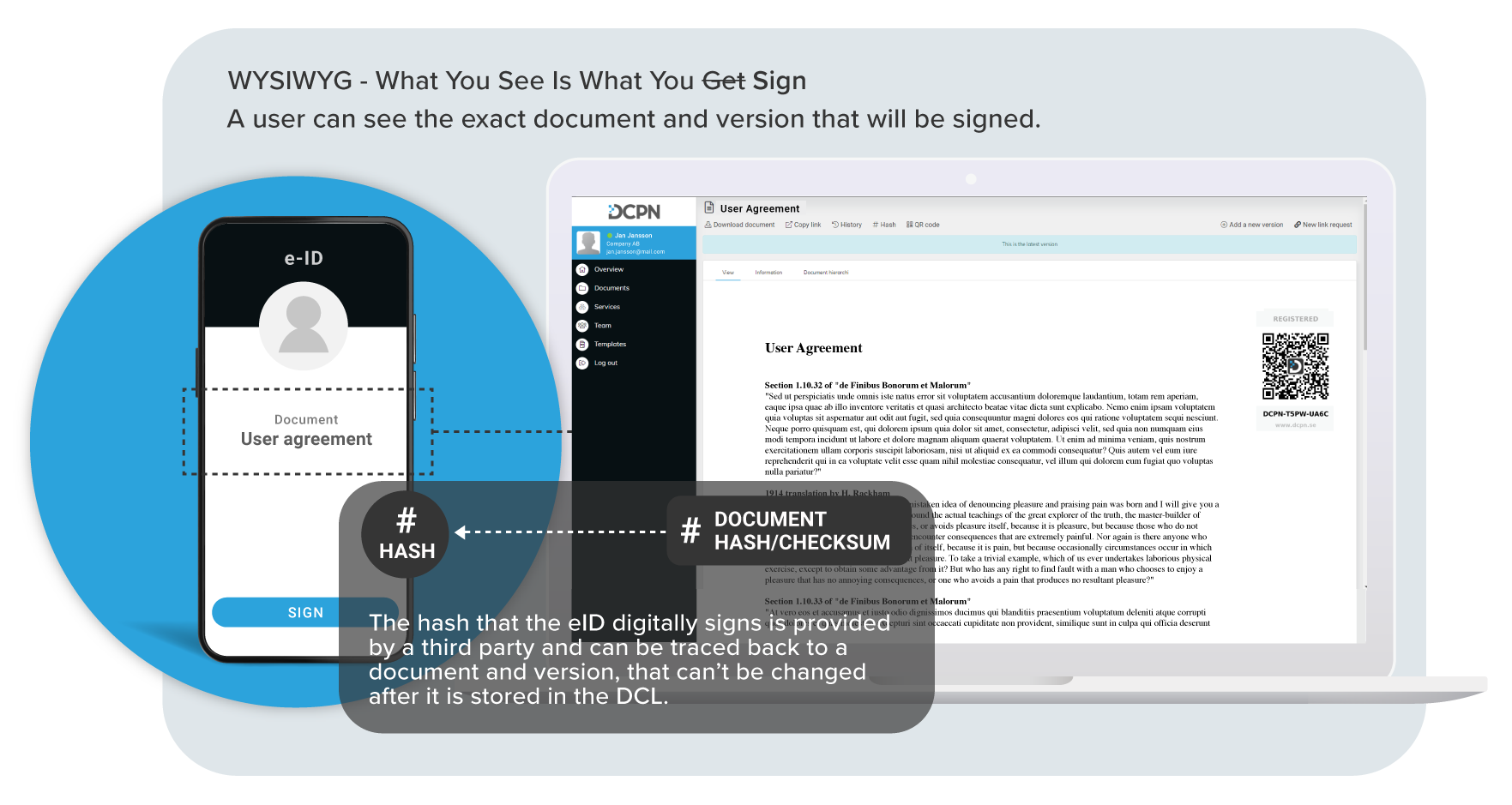DCPN
Today, when a foreign student wants to apply for a job or an education, they need to prove they have verified grades by the university of origin. However, this is a time-consuming process which takes several weeks to fulfil, and neither is it tamper proof.
By connecting the university to the DCPN Distributed Compliance Ledger (DCL), an administrator at the university can publish a record of the student grade at the DCL repository, a record that is connected to the student as an original and can be verified by a 3rd party.
The student can simply provide the university grades as a copy of the original grades stored in the DCL, for anyone to verify, for example via a QR-code.
The process of managing grades from international students can be improved from several weeks to minutes. By requesting all students to have their grades provided through the DCL repository, students will provide validated grades and where the hash values can prove that a copy of the original is the same as the original itself.

Most national eID systems are built around signing checksums which the service creates, and the customer rarely sees, or receives, an authenticated copy of what they sign, or commit to, that is admissible in a court of law.
Combining a national eID system with the DCPN repository means that the checksum is created by a third party and the user can trace the signature to the document in the repository providing irrefutable evidence of the digital interaction.
By using DCPN Repository the users of a national eID gets history and traceability in every transaction using the national eID, where the user can see exactly what was signed and when.
